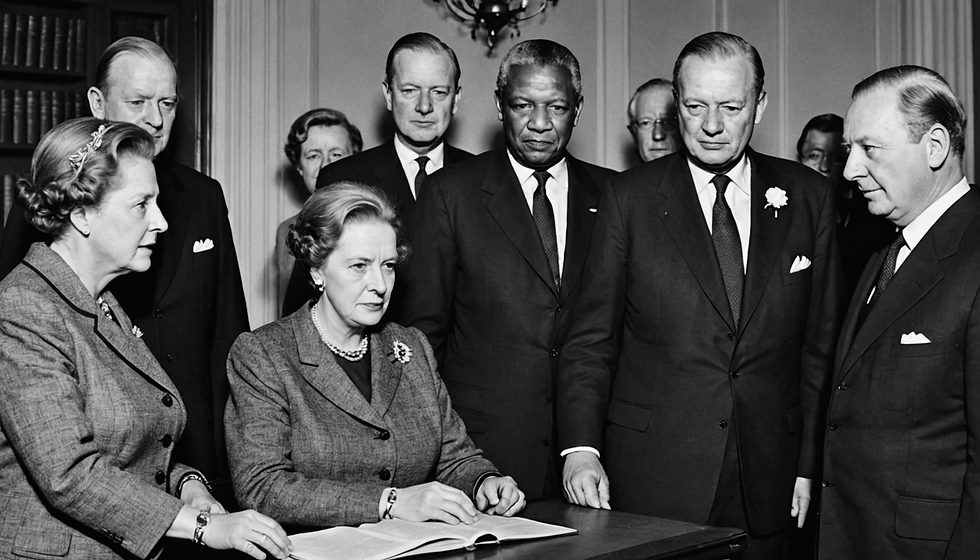Negotiating a win when "interests" don't match
- R.M. Boylan

- Feb 18
- 3 min read
Updated: Feb 26
R.M. Boylan BSc. M.A.

Harvard Negotiation Project
There are very useful elements I have used for over 20 years for developing a negotiation plan and strategy from the Harvard Negotiation Project. It is a structured methodology that forces the negotiator to adopt a methodology of negotiation. Many people confuse bargaining, bullying with negotiating.
The Harvard Negotiation Project (HNP) was established in 1979 at Harvard Law School to improve the theory and practice of negotiation. It emphasizes principled negotiation, which is based on the idea that parties should focus on interests rather than positions. This approach was popularized by Roger Fisher and William Ury in their seminal book, Getting to Yes, where they argue that understanding the underlying interests of both parties leads to more satisfactory and sustainable agreements.
Positions vs. Interests
In negotiation, a position is a specific demand or stance that a party takes (e.g., "I want a 10% raise"). In contrast, an interest refers to the underlying reasons or motivations that drive those positions (e.g., "I need a raise to support my family"). Understanding the difference between positions and interests is crucial for effective negotiation.
Importance of Addressing Interests
Focusing on interests rather than positions is essential for several reasons:
Collaboration: Addressing interests fosters a collaborative atmosphere, allowing both parties to explore options that satisfy their needs.
Flexibility: Interests can lead to multiple solutions, while positions often result in a win-lose scenario.
Relationship Building: Negotiating based on interests tends to strengthen relationships, as parties feel heard and valued.
Consequences of Focusing on Positions
When negotiators focus on positions, several issues may arise:
Stalemate: Parties may become entrenched in their positions, leading to impasses.
Increased Conflict: Position-based negotiations can escalate tensions and lead to adversarial behavior.
Missed Opportunities: Focusing solely on positions can result in overlooking creative solutions that could satisfy both parties' interests.
Getting to Interests When Facing Stonewalling
When the other party is stonewalling, negotiators can employ several strategies to uncover interests:
Ask Open-Ended Questions: Encourage dialogue by asking questions that invite the other party to share their underlying concerns.
Active Listening: Demonstrate empathy and understanding, which may prompt the other party to open up.
Reframe the Discussion: Shift the focus from positions to shared interests or common goals.
Incompatible Interests in Situations Like Trade Wars
In scenarios where interests are fundamentally incompatible, such as in trade wars, negotiation becomes more complex. However, even in such cases, there are strategies that can help:
Identify Mutual Gains: Look for areas where both parties can benefit, even if their primary interests conflict.
Third-Party Mediation: Involving neutral parties can help facilitate dialogue and propose solutions that might not be considered otherwise.
Long-Term Perspective: Focus on the long-term relationship and potential future collaborations, rather than just immediate gains.
Make sure you are addressing interests of the other party before it is too late to plan an effective manoeuver.
The Weaker Party's Maneuvering in Negotiations
In negotiations, the weaker party often faces challenges, but they can still maneuver towards a favorable outcome:
Leverage External Factors: The weaker party can seek to leverage external pressures (e.g., public opinion, regulatory changes) to strengthen their negotiating position.
Build Alliances: Forming coalitions with other parties can amplify their negotiating power.
Focus on Interests: By identifying and articulating their own interests clearly, the weaker party can create opportunities for compromise and collaboration.
Conclusion
In summary, the Harvard Negotiation Project highlights the importance of distinguishing between positions and interests in negotiations. By focusing on interests, negotiators can foster cooperation, avoid stalemates, and work toward mutually beneficial outcomes. Even in challenging situations, such as trade wars or when faced with stonewalling, strategies exist to navigate these complexities and potentially achieve favorable results.
References
Boylan, R.M. (2006-2009). Conflicts and considerations comparing Abraham Maslow's hierarchy of needs to Jane Loevinger's model of ego development for assessing the level of development of a leader. M.A. Leadership Studies.
Fisher, R., & Ury, W. (1981). Getting to Yes: Negotiating Agreement Without Giving In. Penguin Books.
Fisher, R., Ury, W., & Patton, B. (2011). Getting to Yes: Negotiating Agreement Without Giving In (3rd ed.). Penguin Books.
Lewicki, R. J., Barry, B., & Saunders, D. M. (2015). Negotiation (7th ed.). McGraw-Hill Education.
Thompson, L. (2014). The Mind and Heart of the Negotiator (6th ed.). Pearson.





Comments